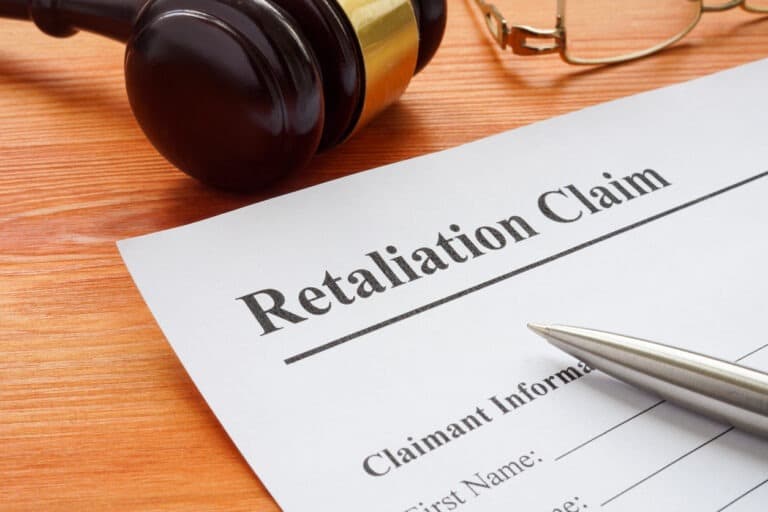Factors to Consider to Maximize the Whistleblower’s Recovery
Identify the Federal or State Law that Protects the Whistleblower’s Disclosure
There is no catch-all federal whistleblower law for private sector workers that protects disclosures of unlawful conduct. Instead, federal whistleblower protection laws protect specific types of disclosures, such as disclosures about tax fraud, securities fraud, procurement fraud, or consumer financial protection fraud. Examples include:
- The False Claims Act (FCA) — protecting actions taken in furtherance of a qui tam action and efforts to stop a violation of the FCA;
- The Defense Contractor Whistleblower Protection Act (DCWPA) — protecting whistleblowing about waste, fraud and abuse or a violation of law, rule, or regulation related to a federal contract;
- The Sarbanes-Oxley Act (SOX) — protecting disclosures about mail fraud, wire fraud, bank fraud, securities fraud, a violation of any SEC rule, or shareholder fraud;
- The Dodd-Frank Act (DFA) — protecting whistleblowing to the SEC about potential violations of federal securities laws;
- The Taxpayer First Act (TFA) — protecting disclosures about tax fraud or tax underpayment;
- The Consumer Financial Protection Act (CFPA) — protecting disclosures concerning violations of Consumer Financial Protection Bureau rules or federal laws regulating unfair, deceptive, or abusive practices; and
- The Anti-Money Laundering Act (AMLA) — protecting disclosures about violations of the Bank Secrecy Act.
Maximizing Damages
Variations in the remedies available to whistleblowers under federal anti-retaliation laws may warrant bringing more than one claim. For example, the DCWPA authorizes an award of back pay, and the FCA authorizes an award of double back pay. If the whistleblower’s disclosures about potential fraud on the government are protected under both statutes, then the whistleblower should bring both claims to maximize their recovery.
And a whistleblower seeking to remedy retaliation for disclosing securities fraud should consider bringing claims under both DFA and SOX because SOX authorizes uncapped special damages (damages for emotional distress and reputational harm), whereas the DFA does not authorize compensatory damages. And while SOX authorizes single back pay, the DFA authorizes double back pay. Therefore, a whistleblower protected under both SOX and the DFA statutes should initially bring the SOX claim within the much shorter SOX statute of limitations (180 days) and consider adding a DFA claim once the whistleblower removes the case to federal court.
Moreover, adding a common law wrongful discharge claim could offer the opportunity to seek punitive damages if available under state law.
Identify a Remedy with a Favorable Causation Standard
To maximize the likelihood of prevailing at trial (or at least getting the case before a jury), it is critical to select a remedy with a favorable causation standard. SOX and most of the whistleblower protection laws that DOL enforces employ a favorable “contributing factor” causation standard, i.e., the protected whistleblowing affected in any way the employer’s decision to take an adverse action. In contrast, the FCA and DFA require the whistleblower to prove “but for” causation, i.e., the adverse action would not have happened “but for” the protected whistleblowing.
Choose the Optimal Forum and Exhaust Administrative Remedies
When selecting the optimal remedy to combat retaliation, a whistleblower should consider the forum where the claim would be tried and determine whether the claim must initially be investigated by a federal agency before the whistleblower can litigate the claim. SOX provides an unequivocal exemption from mandatory arbitration, but Dodd-Frank claims are subject to arbitration. Accordingly, a whistleblower protected both by SOX and Dodd-Frank should file a SOX claim within the 180-day statute of limitations to preserve the option to try the case before a jury.
Several of the corporate whistleblower protection laws require that the whistleblower file the claim initially at a federal agency and permit the agency to investigate the claim before the whistleblower can litigate the claim. In contrast, the FCA and DFA do not require administrative exhaustion.
Identify Potential Whistleblower Rewards Claims
Where a whistleblower has original information about securities fraud, commodities fraud, tax fraud, money laundering, or fraud on the government, the whistleblower could be eligible for a whistleblower reward. It is critical to assess early on how filing a whistleblower rewards claim could impact the whistleblower’s retaliation claim and vice versa.
For example, filing an FCA retaliation claim while a qui tam suit is under seal poses some risk of violating the seal, which could bar the whistleblower from recovering a relator share. Therefore, counsel should consider filing the FCA retaliation claim under seal along with the qui tam suit.
While there are significant gaps in the patchwork of whistleblower protections, there is an increasing array of whistleblower rewards and whistleblower protection laws. To effectively combat retaliation, whistleblowers should avail themselves of all available remedies.
Originally published in ABA Labor and Employment Law Newsletter – Fall 2022
What is Whistleblower Retaliation?
What Damages Can a Whistleblower Recover in a Whistleblower Retaliation Case?








